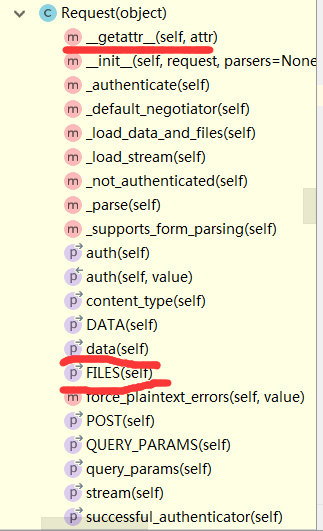一 安装djangorestframework
方式一:pip3 install djangorestframework
方式二:pycharm图形化界面安装
方式三:pycharm命令行下安装(装在当前工程所用的解释器下)
二 djangorestframework的APIView分析

@classmethod def as_view(cls, **initkwargs):
#这句话执行完成 view闭包函数的内存地址 """ Store the original class on the view function. This allows us to discover information about the view when we do URL reverse lookups. Used for breadcrumb generation. """ if isinstance(getattr(cls, 'queryset', None), models.query.QuerySet): def force_evaluation(): raise RuntimeError( 'Do not evaluate the `.queryset` attribute directly, ' 'as the result will be cached and reused between requests. ' 'Use `.all()` or call `.get_queryset()` instead.' ) cls.queryset._fetch_all = force_evaluation #调用父类(view)的as_view view = super(APIView, cls).as_view(**initkwargs) view.cls = cls view.initkwargs = initkwargs
view = csrf_exempt(view)#局部禁用csrf
# Note: session based authentication is explicitly CSRF validated, # all other authentication is CSRF exempt. return csrf_exempt(view)

#请求来了会执行上面返回的view()---->self.dispatch(APIView的dispatch)
#APIView的dispatch方法
def dispatch(self, request, *args, **kwargs): """ `.dispatch()` is pretty much the same as Django's regular dispatch, but with extra hooks for startup, finalize, and exception handling. """ self.args = args self.kwargs = kwargs
#把原生的request,封装进新的Request对象(drf的Request) request = self.initialize_request(request, *args, **kwargs) self.request = request self.headers = self.default_response_headers # deprecate? try: self.initial(request, *args, **kwargs) # Get the appropriate handler method if request.method.lower() in self.http_method_names: handler = getattr(self, request.method.lower(), self.http_method_not_allowed) else: handler = self.http_method_not_allowed #这个request新的request,是drf中Request对象
#response是原生response
response = handler(request, *args, **kwargs) except Exception as exc:
#全局异常 response = self.handle_exception(exc) #把原生的reponse包装了一下 self.response = self.finalize_response(request, response, *args, **kwargs) return self.response

def initialize_request(self, request, *args, **kwargs): """ Returns the initial request object. """ parser_context = self.get_parser_context(request) return Request( request, parsers=self.get_parsers(), authenticators=self.get_authenticators(), negotiator=self.get_content_negotiator(), parser_context=parser_context )

def initial(self, request, *args, **kwargs): """ Runs anything that needs to occur prior to calling the method handler. """ self.format_kwarg = self.get_format_suffix(**kwargs) # Perform content negotiation and store the accepted info on the request neg = self.perform_content_negotiation(request) request.accepted_renderer, request.accepted_media_type = neg # Determine the API version, if versioning is in use. version, scheme = self.determine_version(request, *args, **kwargs) request.version, request.versioning_scheme = version, scheme # Ensure that the incoming request is permitted
#重点(频率,认证,权限)
self.perform_authentication(request) self.check_permissions(request) self.check_throttles(request)


